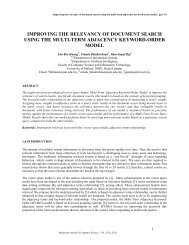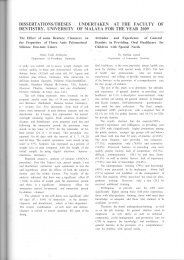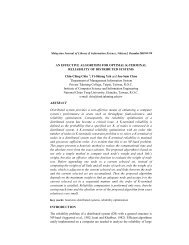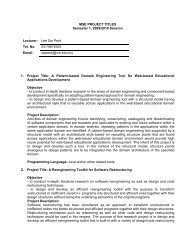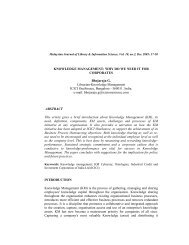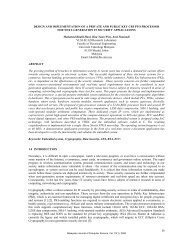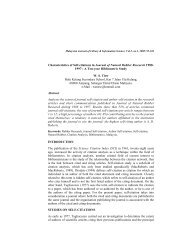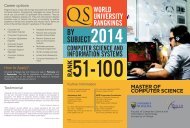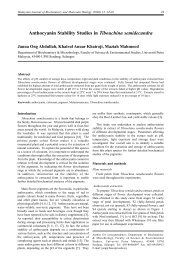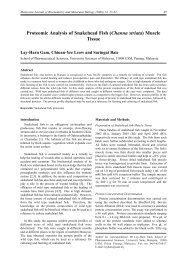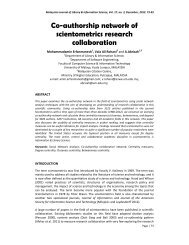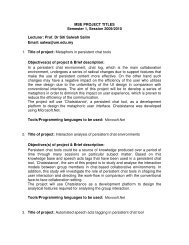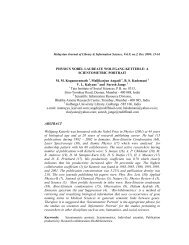Download1 - EJUM
Download1 - EJUM
Download1 - EJUM
Create successful ePaper yourself
Turn your PDF publications into a flip-book with our unique Google optimized e-Paper software.
Babalhavaeji, F. & Jafarzadeh Kermani, Z.In identifying the influence of type of institutions on faculty’s knowledge sharingbehaviour, the researchers found no significant relationship between knowledge sharingbehaviour of faculties working in governmental universities and those in privateuniversities. On the other hand, results show that there is a significant relationshipbetween faculties' teaching experience and their knowledge sharing behaviour – facultieswith less than five years’ experience and more than 20 years’ experience showed higherdegree of knowledge sharing behaviour. This is different with what Lou, Yang and Shih(2007) found in their research. Their findings revealed that instructors at public collegesand universities tended to be more willing to share knowledge compared to instructors atprivate colleges and universities. Furthermore, instructors with a seniority of 5 to 10 yearstended to be more willing to share knowledge than instructors with less than 5 yearsteaching experience. However, Lou, Yang and Shih (2007) found that instructors with fewerthan 5 years experience tended to be more willing to share knowledge than their seniorcounterparts of over 10 years experience.This study is limited to the influence of three individual factors (attitude, intention andintrinsic motivation) and two demographic variables (teaching experience and type ofinstitution) on knowledge sharing behaviour, as such further research may be conducted todetermine other factors such as trust, communication and collaboration on knowledgesharing behaviour of the faculty members. Although the study found the effect of intentionand intrinsic motivation as significant variables on knowledge sharing behaviour, the meanvalue obtained for knowledge sharing behaviour of the LIS academics is low (2.05). Thestudy may be extended to examine what factors motivate faculties and enforce theirintention to share knowledge. On the whole, based on the findings of the research, whatuniversities administrators and management should consider is to create a facilitative workenvironment for knowledge sharing so that knowledge sharing becomes a second natureamong academics.ACKNOWLEDGEMENTThe authors thank Dr. Mohammad Khorashadizadeh for his statistical consultation, Dr.Nadjla Harriri and Dr. Mohammad Hassanzadeh for their useful comments and Mrs.Khaleghi for her great help in collecting the questionnaires. The authors would also like tosend their appreciation to all Library and Information Science faculties participated in thisstudy.REFERENCESAndriessen, E.J.H. 2006. To share or not share, that is the question: conditions for thewillingness to share knowledge. Delft Innovation System Papers, Research ProgrammeInnovation Systems, Faculty of Technology, Policy and Management, Delft Universityof Technology, Delft, The NetherlandsArdichvili, A., Page, V. and Wentling, T. 2003. Motivation and barriers to participation invirtual knowledge-sharing communities of practice. Journal of KnowledgeManagement, Vol. 7, no.1: 64-77.Aulawi, H. et al. 2009. Knowledge sharing behaviour, antecedent and their impact on theindividual innovation capability, Journal of Applied Sciences Research, Vol. 5, No. 12:2238-2245.Page | 12



